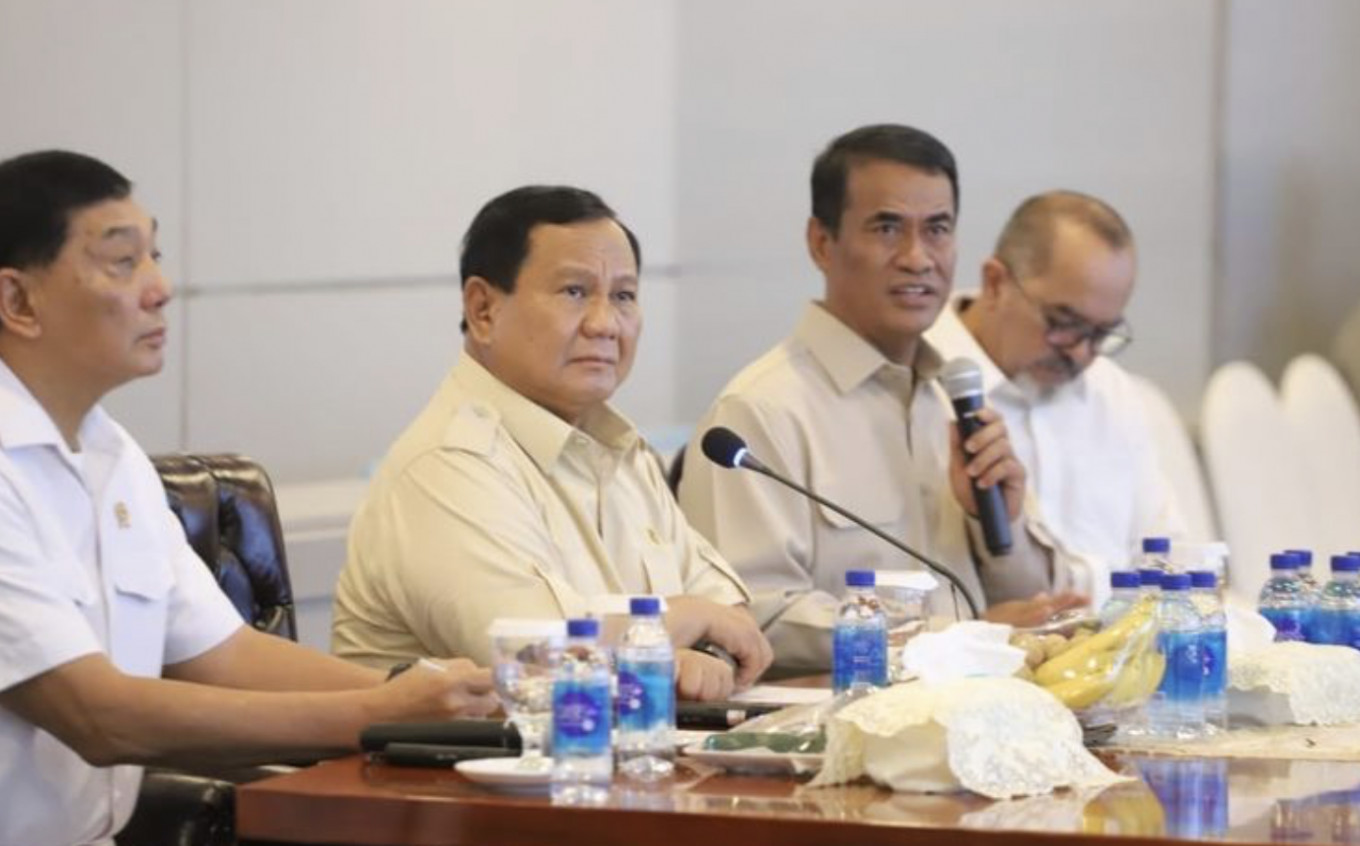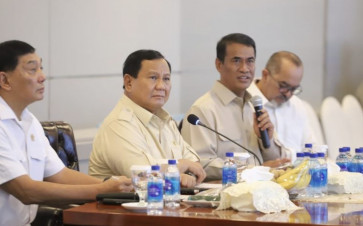Popular Reads
Top Results
Can't find what you're looking for?
View all search resultsPopular Reads
Top Results
Can't find what you're looking for?
View all search resultsPrabowo’s economic strategy: Grand promises, familiar pitfalls
Has Prabowo charted a clear, pragmatic course for Indonesia’s economic future, or are we witnessing a continuation of costly missteps and missed opportunities?
Change text size
Gift Premium Articles
to Anyone
W
e have just passed the first 100 days of the Prabowo administration, a crucial period that often sets the tone for a government’s economic trajectory. There is no better time than now to critically assess its early performance and whether policies are grounded in sound economics or are merely political grandstanding.
Has Prabowo charted a clear, pragmatic course for Indonesia’s economic future, or are we witnessing a continuation of costly missteps and missed opportunities?
I will analyze Prabowo’s economic direction through the lens of six key themes from Max Steuer’s Dangerous Guesswork in Economic Policy, a framework that highlights the risks of flawed decision-making, the role of expertise, and the broader implications of economic governance.
First, Indonesia’s economic policymaking has often suffered from a disconnect between rigorous academic research and government decision-making. Apparently, Prabowo’s administration inherits an economy where pragmatic policies are often sidelined in favor of populist measures.
The emphasis on food security through large-scale state intervention, such as the proposal to establish food estates involving the army, raises concerns about inefficient resource allocation and environmental degradation.
Instead of addressing structural inefficiencies, Prabowo continues to favor short-term, politically attractive policies over well-researched economic solutions. This misalignment fosters a cycle of inefficiency, where policies fail to address fundamental economic problems such as weak productivity growth, very low investment levels, reliance on commodities and persistent inequality.
Second, blessed with abundant natural resources, Indonesia has long depended on its vast reserves to fuel economic growth. Yet under Prabowo’s leadership, the pattern of unchecked resource exploitation continues, with little to no reinvestment in sustainability.



















